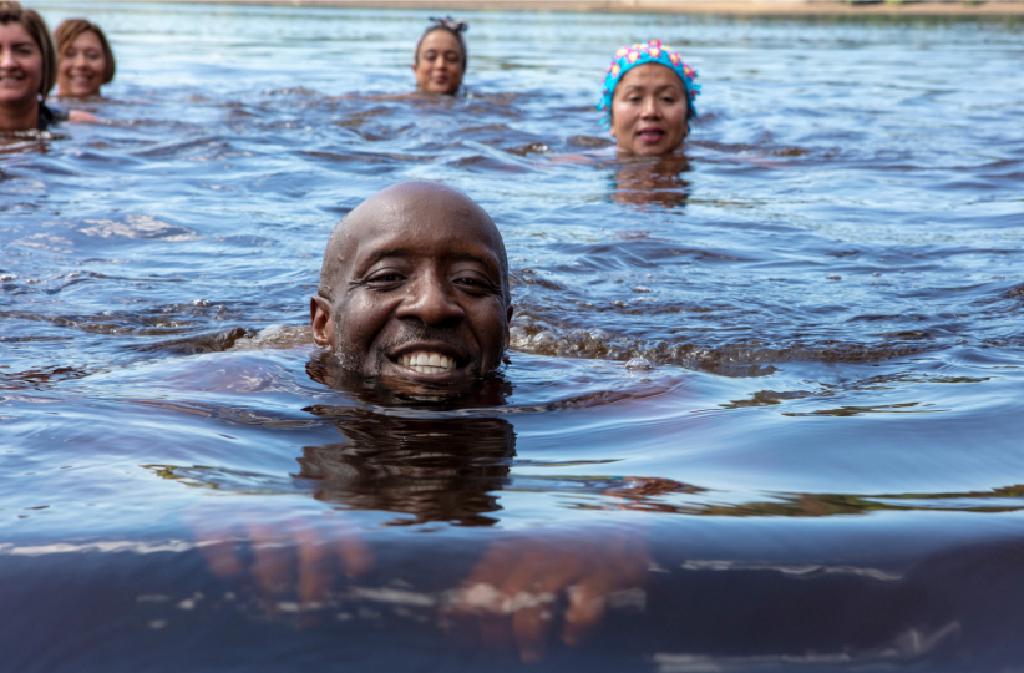
Cold, or wild, water swimming has become an increasingly popular option for those looking to feel great – in their mind, body, and spirit. But if this is your first time hearing about the hobby, it might be tough to know if it’s right for you. Let’s take a closer look at exactly what it involves, as well as all the benefits for those who take the plunge.
What is Cold Water Swimming?
Cold water swimming is the process of submerging yourself in natural bodies of cold or even icy water, with the purpose of achieving positive therapeutic and physical side-effects.
While the name might spark images of swimmers doing a front crawl across crisp blue lakes, once you’re in the water, the way you participate is totally up to you. Some choose to ritually submerge themselves, while others engage in more traditional forms of swimming. Ultimately, the best practice is to go with what feels right for your body.
Most people dip their toes into cold swimming by embracing the UK’s seasides during the summer, but, at its extremes, it’s considered a sport – where endurance athletes will immerse themselves in icy water.

Cold Water Swimming Statistics for 2023
Thinking of getting into cold water swimming? You certainly wouldn’t be alone. Reports suggest that when the first national lockdown hit in March of 2020, the number of people signed up as a member of the Outdoor Swimming Society rose by a staggering 36%.
And far from being just a fair weather fling, a survey conducted at outdoor swimming events in 2022 found that as many as 20% of the 4,500 people asked had taken up the discipline during the previous 12 months.

The Benefits of Cold Water Swimming
Just as with any kind of outdoor exercise, those engaging in cold water swimming will experience a range of positives. From physical fitness to improved mental health, here are some of the most useful benefits to time spent in the water.
Improved metabolism
The extreme condition of cold water swimming has the natural effect of causing your heart to pump faster – as it attempts to warm you up. This in turn burns through more calories, and means that while you’re in the water, your metabolic rate is higher than it would be normally. Active exercise will also do this, so the more you move the better it’ll be.
A boosted immune system
Again as a result of a sudden change in temperature, your body will release a higher than average amount of white blood cells (which help fight infection). What’s more, a gradual introduction to starkly changing conditions will help your body to build stronger natural defences over time, as it learns how to combat extreme shifts.
It supports and improves mental health
Studies regularly show that regular cold water swimming reduces anxiety and stress, greatly improving someone’s overall mental health. The discipline teaches resilience, deep breathing, and places “positive stress” (things that push us in a healthy way) on the body.
Hair and skin health
The health of our extremities is controlled in no short part by how good our circulation system is. With your veins, capillaries, and arteries forcing blood to the surface of your skin, it serves as a “flushing” of sorts, helping to keep our blood flow healthy, and regular. Our hair and skin benefit as a result of that.
It can ease menopause symptoms
It’s also believed that women experiencing the symptoms of menopause might also benefit from taking a dip. Factors like hot flushes, night-sweats, headaches, anxiety, and memory loss have been at least somewhat alleviated making cold water swimming part of a weekly routine.
To find out more about cold water swimming, check out Hot Tub Hideaways’ full article over on their blog here.
